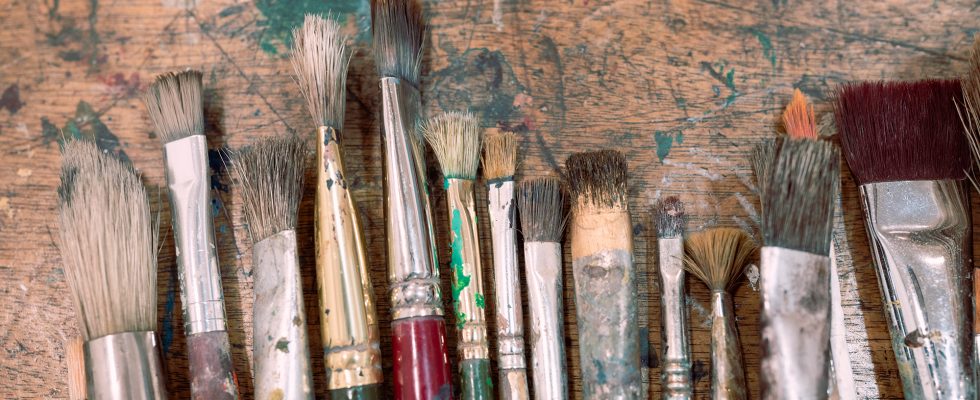Status: 04/05/2023 12:58 p.m
Exhibitions, trips abroad or idea training: Researchers have examined which measures are particularly effective in increasing our creativity. However, drugs such as alcohol are not included.
There are many ways to positively influence and encourage creative thinking. Researchers from Humboldt University in Berlin (HU), Essex University in Great Britain and the University of Potsdam have meta study examines which measures are particularly suitable for increasing our creativity.
Association exercises or travel helpful
In their work, the authors identified twelve methods that can actually help. The most effective are therefore holistic trainings that convey the concept of creativity and a series of measures. These include, for example, association exercises – in which, for example, matching or supplementary terms are sought for an existing term – or brainwriting.
This is similar to brainstorming, with the difference that the ideas are not verbalized in a group situation, but are written down alone. According to first author Jennifer Haase, this prevents you from being influenced by the statements of others or from dominant group members choking off the ideas of others.
84 studies evaluated
According to the study, however, there are also simpler and very pleasant ways to increase your creativity. This includes in particular meditation, visiting art exhibitions or contact with other cultures, for example through stays abroad. These achieved similar effects to intensive training, but with comparatively little effort. “Overall, after these methods, about 70 percent of the people were more creative than before,” says Haase, summarizing the results.
The researchers analyzed 84 international studies, mainly in the field of psychology between 2000 and 2021, which tried to improve creativity with different methods.
Measuring tools for creativity
But how do you measure something as abstract as creativity? “The research there is very pragmatic,” says Haase tagesschau.de. “There are some standard tests. One asks people to think of alternative uses for everyday objects.” The more and the more unusual the ideas are, the more creative they are rated. “Because free, associative thinking is a central dimension of creative thinking. It’s about generating new, unknown ideas.”
So, according to Haase, everyone can get a little more creative. Because that also has to do with prior knowledge. “The number one credo is: Know the area you’re in. Musicians, for example, need certain skills to implement their creativity. The same applies to social contexts or processes in a company.”
In addition, the personality and world view of a person are also important prerequisites for creativity. “One should be optimistic, have an open mindset and be able to associate widely,” explains the researcher. And having a positive self-image is beneficial. People who believe in themselves – without being narcissists – have good prerequisites for creativity.
Creativity as the basis for progress
According to the authors, the findings are also important because creative thinking is – still – an increasingly human skill that is becoming all the more important as a result of digitization. It is the basis of progress, innovation and also of the utmost importance for well-being in everyday life. That is why it is also important to continue to promote creativity.
Drugs don’t increase creativity
Another important finding of the study: Taking drugs has no positive impact on human creativity. “Interestingly, however, people who have used drugs believe that they are more creative, when in fact they are not,” said co-author Paul Hanel of the University of Essex’s Department of Psychology in the UK.
The consumption of substances such as alcohol or the concentration-enhancing drug Adderall therefore shows no positive influence on creative performance. Adderall is an amphetamine drug that people, especially in the US, also use to help them work more efficiently. Substances such as THC or cocaine have not been studied. “It’s particularly interesting and also encouraging that drugs don’t affect creativity given the side effects,” Hanel said.
According to Haase, the fact that drugs have the myth of inspiring the spirit of musicians or artists, for example, could be due to another effect: “Perhaps the people who are already more open, courageous – and therefore tend to be more creative – are also more likely to take drugs.” Also, many creatives who made things while under the influence of drugs would no longer judge them as creative when sober.

